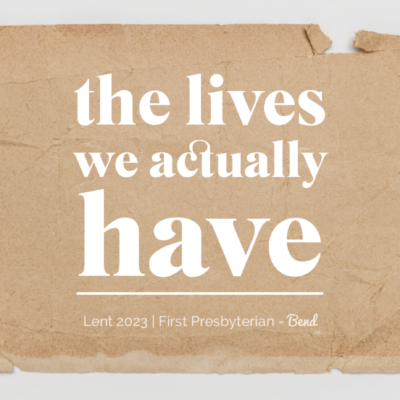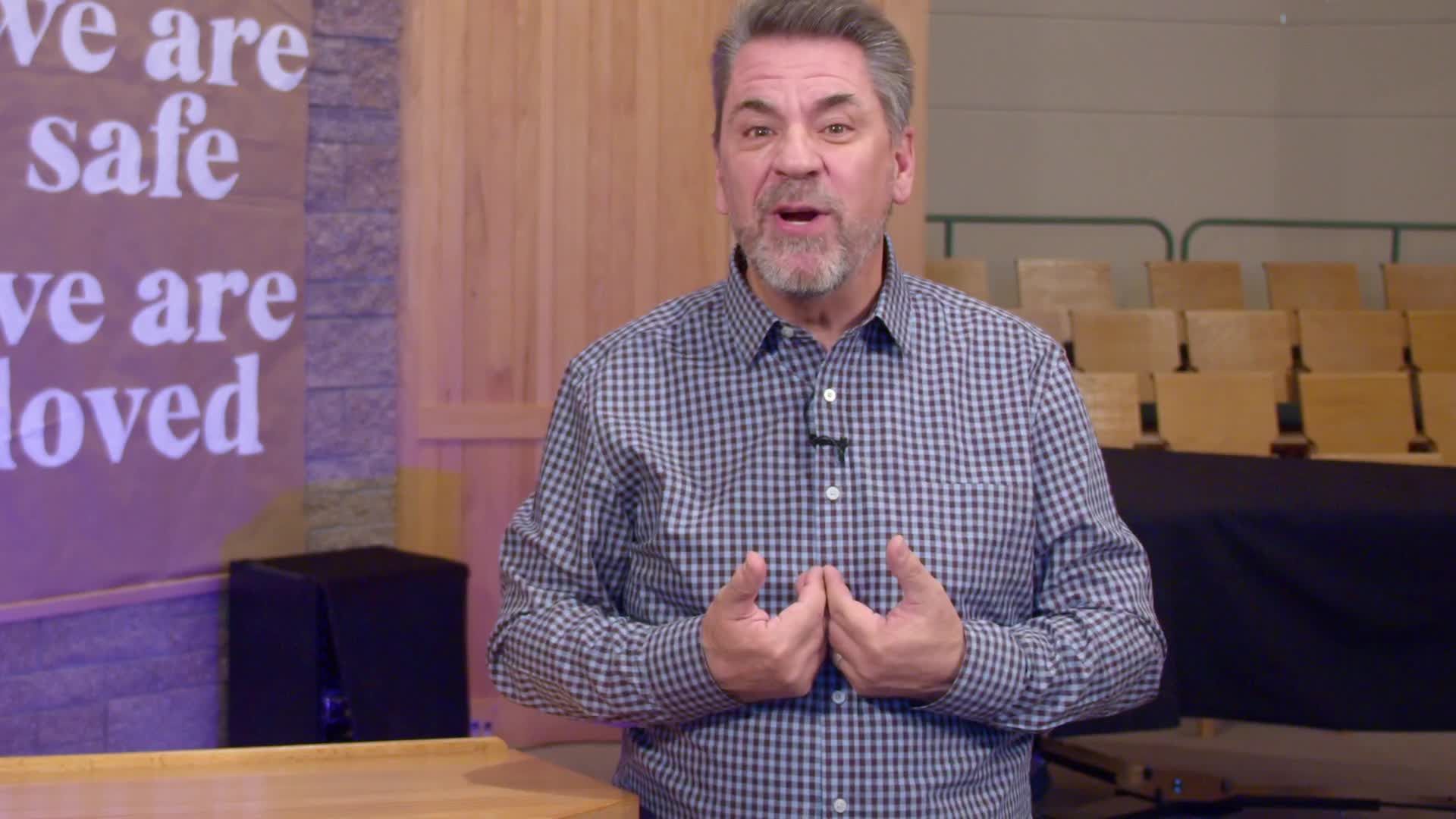Mar 12th, Blessed are the Suffering, with Rev. Dr. Steven Koski
A Part of the Series:
Rev. Dr. Steven Koski
Other Articles in:
Mar 12th: Blessed are the Suffering, with Rev. Dr. Steven Koski.
It’s not the weight you carry, but how you carry it. Books, bricks, grief. It’s all in the way you embrace it, balance it, carry it when you cannot and would not put it down. That’s a line from Mary Oliver’s poem Heavy that she wrote, processing her pain and grief when her longtime partner died. We can’t avoid suffering, suffering.
Psalm 23 doesn’t say, if you walk through the valley of the shadows of death. Psalm 23 says, win when you walk through the valleys, we all have to walk through the valley of the shadows. Living well is about how we embrace balance, carry the weight of our pain, suffering, grief, especially when it feels heavier than we can handle. Some things in life can’t be fixed. They can only be carried.
Harold Kushner wrote the book when Bad Things Happen to Good People. To cope with the weight of his grief over the death of his son, he said that even today, 30 years later, he thinks about his son every day like a tongue probes of missing tooth. He said the weight of his grief shattered his belief in a God of easy answers. Instead, he says, I came to know the God we hear about in Psalm 139, where it says, even if you make your bed in the very depths of hell, I’ll be there with you. We often think the goal the goal is somehow somehow to overcome or to get over the painful things that happen to us in life.
It’s not. That’s not the goal. The painful things that happen are part of our story, will always be part of our story. Our faith tells us it’s not the whole story or the end of the story. And our spiritual work is to carry the weight, carry the weight in a way that enlarges our story and doesn’t diminish us.
The Apostle Paul says in the Book of Romans, and we know that in all things, god works for the good of those who love him and who have been called according to his purpose.
It doesn’t say Hear me clearly. It doesn’t say God orchestrates our suffering so that we might learn some lesson, or that God has some greater plan we just don’t understand, or that everything happens for a reason. It says in in all things, God is present, working for the good.
Everything doesn’t happen for a reason. Some things just happen. You know, I remember when my dad died, I i received a card from a friend that that simply said, I’m sorry, man, this really sucks. And to my surprise, the floodgates of my tears opened. I just sobbed.
My friend didn’t try to explain my suffering or comfort me with empty platitudes. He simply witnessed, acknowledged my suffering.
Life isn’t fair. I mean, life can be brutally cruel, and there isn’t always an explanation. What Paul is trying to say in that passage from Romans is that we are never beyond the reach of god’s love. Harold Kushner said, I’m a better man. I’m a wiser man.
I’m a stronger and a more compassionate man. I’m a better rabbi. Due to the weight of the grief I’ve been forced to carry, would I give it all back if I could have one more day, even one more minute with my son? Of course I would. But I can’t.
All I can do is face the darkness and trust. That’s where God dwells. And Kushner said a turning point in his healing came when he stopped when he stopped asking, Why? Why did this happen? Why did God allow this to happen?
As you know, there are no helpful or satisfying answers to that question. Theologian Stanley Howardhouse said, to live well is to be able to live without explanation.
There are no satisfying answers that will solve the problem or take the pain away. Somehow. We have to learn to live in the tension where the answer is that there’s no answer. To be able to live without explanation.
Everything doesn’t happen for a reason. Even if you do all the right things, if you work really hard, if you believe all the right things, if you pray hard, if you have strong faith, suffering is still a painful reality in everyone’s story. No one’s exempt. And the heart of our faith says it’s not the whole story or the end of the story. The worst thing will never be the last thing.
Harold Kushner said instead of asking why, instead of looking for that explanation, I began to ask, now that this has happened, how do I carry this? How do I live in a way that affirms life? How do I choose to love even though my heart has been broken? Psalm 23 says, win not if, but when we find ourselves walking and strange, unwelcome dark valleys, we need not be afraid, because we never have to carry that weight alone.
Emily Kingsley. She’s one of the writers for Sesame Street. She found herself in one of those unexpected dark valleys. She was expecting her first child, dreaming of what her child would be like, like any parent would do, and dreaming of the kind of future that she hoped for her child. But when Jason, her baby, was born, it didn’t go the way she thought it would.
Jason had down syndrome. That was 1974. And and people knew very, very little at that time about down syndrome. Emily’s doctor told her to expect expect very little. Now.
Now, if any of you have had the sheer blessing to know a person with down syndrome, you know how entirely false those predictions were. But Emily remembers crying. She remembers crying for seven straight days. The story she thought she was living the future she was anticipating, completely unraveled. But she was unwilling to accept her doctor’s predictions.
I mean, the first thing she did was find new doctors, new doctors who encouraged her to give Jason as much stimulation as possible. She threw herself into this new mission and Jason was exceeding everyone’s expectations. But Emily began to realize that she was working so incredibly hard with the dream of making Jason like the baby she had always expected. There was a part of her that believed if she worked hard enough, if she stimulated his senses enough, if she challenged him enough, if she prayed enough, if she had enough faith they could somehow overcome the down syndrome. And Emily began to realize that Jason would always have down syndrome.
That was their story.
Rather than trying to put that weight down, emily began to wonder how she might carry the weight of being Jason’s mom in a new way. She stopped asking why. Why was Jason born different than the other children? Instead, she asked, how could I create the kind of life for Jason where both he and I can thrive?
Emily wrote an incredible, incredible short piece called welcome to Holland. She writes, Life throws curves at all of us and we find ourselves living a different story than the story we planned. When you’re going to have a baby? When you’re going to have a baby. It’s like planning a fabulous vacation trip to Italy.
You buy a bunch of guidebooks. You make wonderful plans. The coliseum. They’ll make elangelo. David the Gondolos.
In Venice, you learn some handy phrases in Italian. It’s all very exciting. After months of eager anticipation, the day finally arrives. You pack your bags and off you go. Several hours later, the plane lands.
The stewardess says, welcome to Holland. Holland?
What do you mean, holland? I signed up for Italy. All my life I’ve dreamed of Italy. But there’s a change in the flight plans. You’ve landed in Holland, and there’s no return ticket.
The important thing is they haven’t taken you to a horrible, disgusting place full of pestilence, famine and disease. It’s just a different place, an unexpected place, an unfamiliar place. You need new guidebooks. You need to learn a whole new language. You will meet a whole new group of people you would never have met.
But after you’ve been there a while, you catch your breath. You look around. You begin to notice that Holland has windmills. Holland has tulips. Holland even has REMBRANDTS.
But everyone you know is busy coming and going from Italy and they’re all bragging about what a wonderful time they had there. And for the rest of your life you’ll say, yeah, that’s where I was supposed to go. That’s what I had planned. And the pain of that will never, ever, ever go away because the loss of that dream is significant. It will always be part of your story.
But it’s not the whole story or the end of the story. If you spend the rest of your life mourning the fact that you didn’t go to Italy you may never be free to enjoy the very special, very lovely things about Holland.
The psalmist. The psalmist didn’t say if you find yourself in Holland.
The psalmist said win happens to all of us. When you find yourself in Holland, don’t be afraid. The good news is that God loves wooden shoes and God can’t wait to point out the windmills. And who knows?
As we embrace balance, carry the weight of the luggage that goes along with life’s unexpected trips, we just might catch a glimpse of a rembrandt or see a tulip in a shade we never expected.
Blessed are we who suffer because we never suffer alone. Amen.



